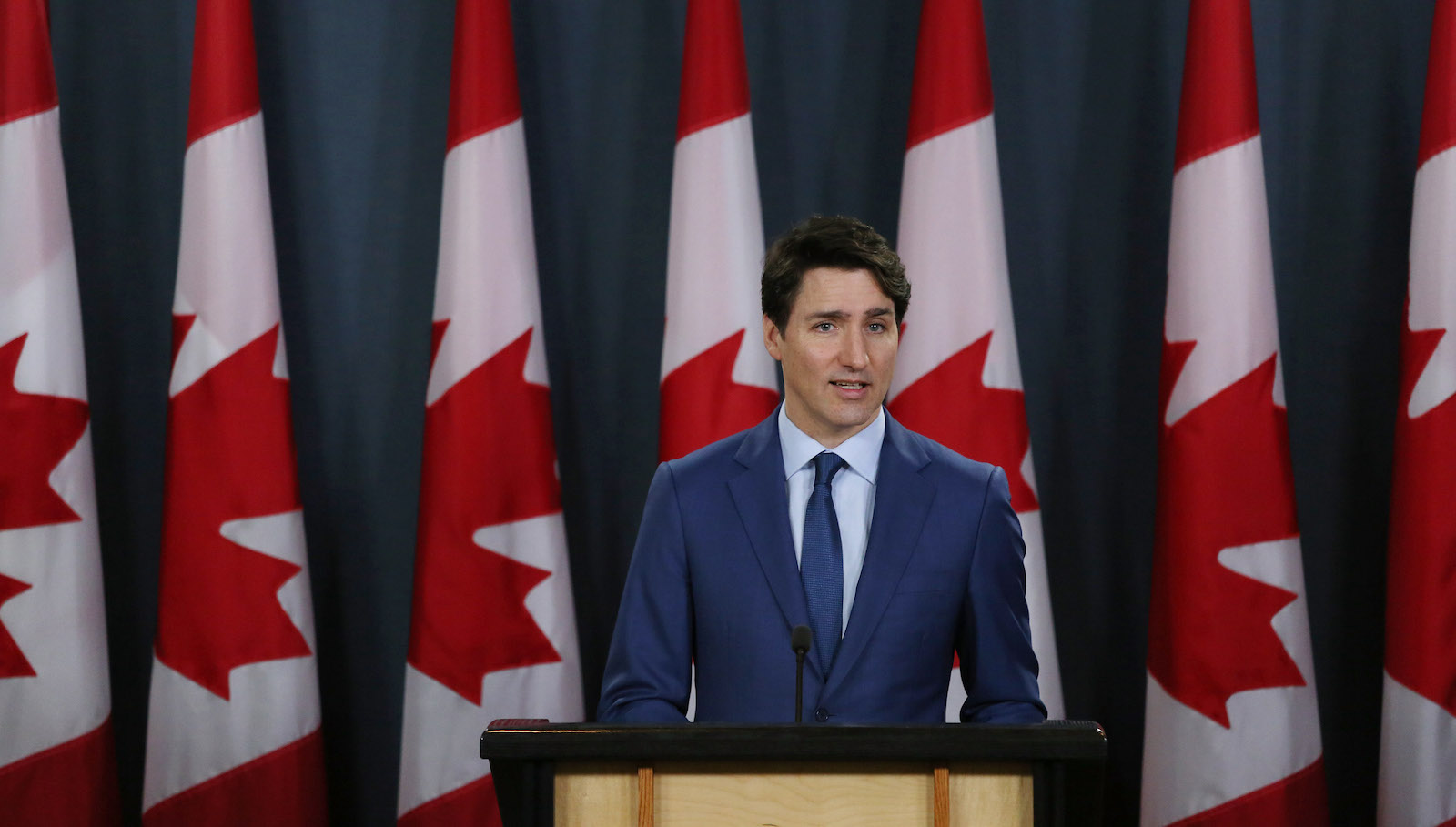Three years ago, Canada accomplished what the United States never could — under Prime Minister Justin Trudeau, the country passed a nationwide carbon tax, charging polluters a fee to dump CO2 into the atmosphere. Now, after a legal fight, the country’s big push for pricing carbon has been ruled constitutional by the Supreme Court of Canada, laying the groundwork for higher prices — and more backlash — to come.
The decision, announced by the Supreme Court in Ottawa on Thursday, ruled that Parliament had the power to enact the 2018 Greenhouse Gas Pollution Pricing Act “as a matter of national concern under the peace, order, and good government.” The conservative and oil-producing provinces of Alberta, Saskatchewan, and Ontario had argued that the act infringed on their rights. (Americans: Sound at all familiar?)
Under the law, provinces that don’t have their own ambitious pricing system in place have to abide by the government’s “backstop,” a tax that’s supposed to ratchet up by CA$10 per ton every year. (The price is currently set at CA$30 a ton, or about $24.) Ninety percent of the proceeds of the tax are returned directly to taxpayers in the form of an annual rebate. According to an analysis by a government watchdog group, most low- and middle-income households receive more in rebates than they pay in taxes. The policy is eerily similar to a revenue-neutral carbon tax that has been repeatedly proposed in the U.S.
Like carbon pricing efforts in the other countries, however, the Canadian law has faced bitter backlash. Conservative lawmakers have argued that the law is unfair to consumers and the country’s oil interests: Doug Ford, the current premier of Ontario, quipped during his election campaign in 2018 that the carbon tax was “the worst tax anyone … could ever have” and then spent CA$4 billion ($3.2 billion) on anti-carbon tax ads on TV, radio, and gas station pumps across the province. Erin O’Toole, the leader of Canada’s Conservative Party, released a statement shortly after the ruling, saying, “We will protect the environment and fight the reality of climate change, but we won’t do it by making the poorest pay more.”
Other countries that have tried to institute prices on pollution have faced similar challenges. In France, a fuel tax increase in 2018 set off violent “yellow vest” protests. In the early 2010s, Australia had a 23 Australian dollar ($17) per ton carbon tax that faced biting criticism and was ultimately repealed by the conservative party. (The country now has a much lower tax, with only a minimal effect on emissions.)
Meanwhile, in the U.S., a few prominent Republicans (including Mitt Romney) have expressed interest in or approval for a carbon tax. But the Biden administration — perhaps learning from the experience of other countries — has avoided the issue entirely, preferring to focus instead on clean energy investments and standards set by the Environmental Protection Agency. The Democratic infrastructure package, which is expected to be packed with hundreds of billions of dollars of clean energy incentives, likely will also dodge the issue of a carbon price.
Even at the state level, attempts to pass carbon prices have largely fallen through. This week, Rhode Island’s House passed a climate bill — but ended up deleting a section about a carbon price. It follows a long history of statewide failures, including two attempts in Washington state. But cap-and-trade programs — another form of pricing carbon — do exist in California and some Northeast states.
Trudeau is pressing on with Canada’s carbon tax regardless of criticism. His government announced last year that it will ratchet the tax up to CA$170 per ton, or $133 U.S., by 2030, in an attempt to meet the country’s targets under the Paris Agreement. That would make Canada’s price one of the highest in the world, and would probably put pressure on the government to establish border tariffs to protect their goods from cheaper international competition.
But, with conservatives already up in arms, it’s hard to imagine the tax more than quintupling in the next decade. “I just don’t see it happening,” said Jessica Green, a professor of political science at the University of Toronto. “I don’t see it politically being feasible for the price to rise as rapidly and as consistently as Trudeau has promised.”
That, after all, is the problem with carbon taxes: In theory, they can decarbonize the economy efficiently and fast. But in practice, they often run aground on political infighting, with prices never getting high enough to actually cut emissions. The next decade will show which path Canada’s carbon tax will follow.



